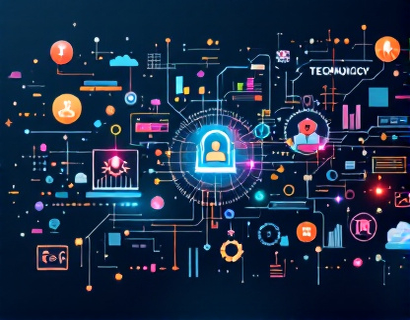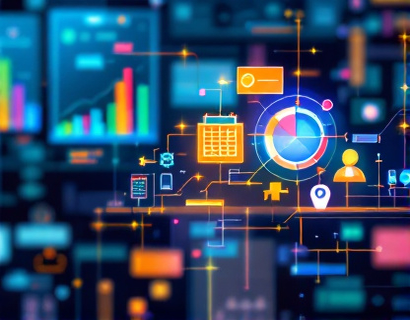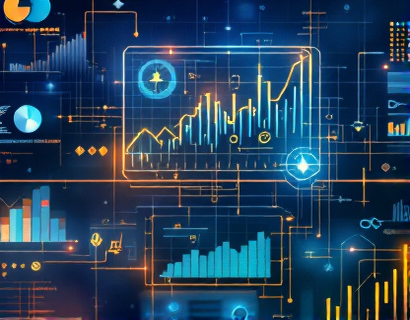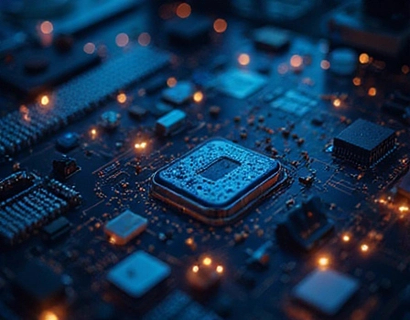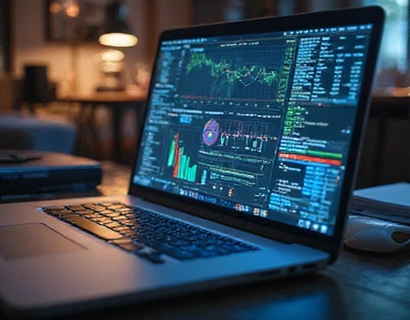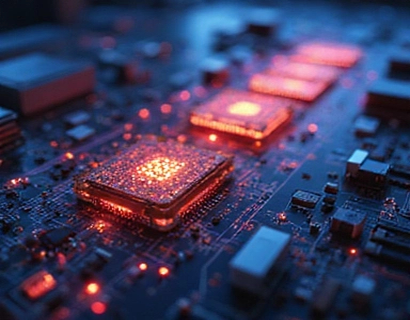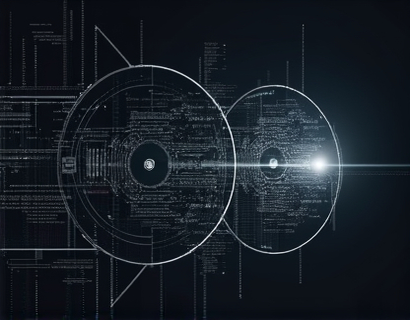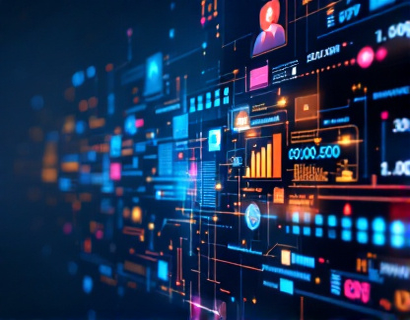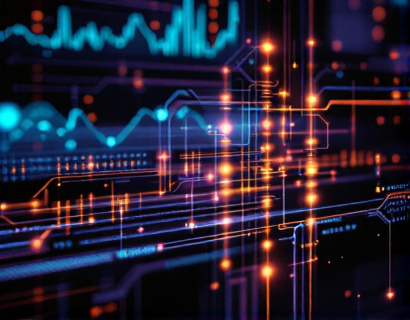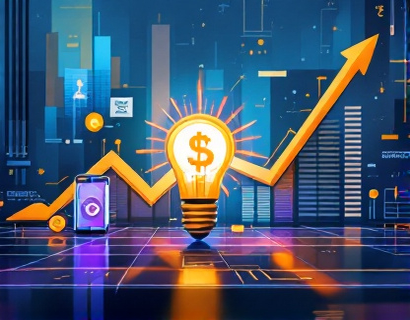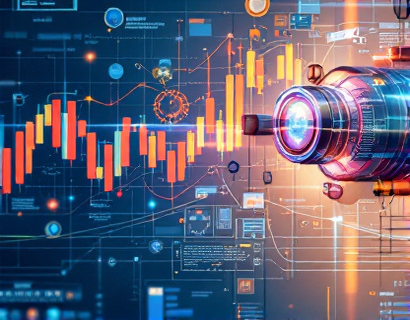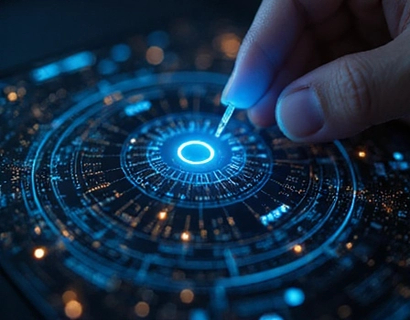Decentralized Innovation: Harnessing Crypto and AI for Next-Gen Digital Solutions
In the rapidly evolving digital landscape, the convergence of cryptocurrency and artificial intelligence (AI) is giving rise to decentralized innovation, opening new frontiers for tech enthusiasts and early adopters. This article delves into the intricate world of decentralized technologies, exploring how the integration of crypto and AI is paving the way for next-generation digital solutions. Whether you're a tech aficionado, an AI enthusiast, or an early adopter of decentralized applications, this guide will provide valuable insights into the transformative potential of these technologies.
Understanding Decentralized Innovation
Decentralized innovation refers to the development and implementation of technologies and systems that operate without central authority or control. This paradigm shift is driven by blockchain technology, which serves as the backbone for decentralized applications (dApps) and decentralized finance (DeFi) platforms. By removing intermediaries, decentralized systems enhance transparency, security, and user empowerment.
The fusion of decentralized technologies with AI is creating a powerful synergy that is redefining digital solutions. AI's ability to process vast amounts of data, learn from patterns, and make intelligent decisions is complemented by the trustless and secure environment provided by blockchain. This combination is unlocking new possibilities in various sectors, from finance and healthcare to supply chain management and beyond.
Cryptocurrency: The Digital Gold of Decentralized Innovation
Cryptocurrency, the digital or virtual currency secured by cryptography, plays a pivotal role in decentralized innovation. Beyond being a medium of exchange, cryptocurrencies like Bitcoin, Ethereum, and others serve as the fuel for decentralized ecosystems. They enable peer-to-peer transactions, smart contracts, and the creation of tokenized assets, all of which are foundational to the decentralized revolution.
One of the key advantages of cryptocurrency in decentralized innovation is its ability to facilitate trustless transactions. Smart contracts, self-executing contracts with the terms directly written into code, rely on blockchain to ensure that all parties adhere to the agreed-upon conditions without the need for a central authority. This not only reduces costs and increases efficiency but also minimizes the risk of fraud and errors.
AI in Decentralized Systems
AI's integration into decentralized systems is revolutionizing how these platforms operate and deliver value. Machine learning algorithms can analyze data from decentralized networks to identify trends, predict outcomes, and optimize processes. For instance, in DeFi, AI can enhance risk management by analyzing market data and providing insights that help users make informed decisions.
Moreover, AI-driven bots and virtual assistants can automate tasks within decentralized applications, improving user experience and accessibility. These AI-powered tools can handle complex operations, from managing digital identities to facilitating seamless transactions, all while ensuring the integrity and security of the decentralized network.
Use Cases of Decentralized Innovation
The potential applications of decentralized innovation are vast and varied. Here are some key areas where crypto and AI are making significant impacts:
- Decentralized Finance (DeFi): DeFi platforms leverage blockchain and AI to offer a range of financial services without traditional banking intermediaries. These include lending, borrowing, trading, and yield farming, all accessible through decentralized applications.
- Supply Chain Management: By using blockchain to track products from origin to destination, businesses can ensure transparency and traceability. AI can further enhance this by predicting demand, optimizing inventory, and detecting fraudulent activities.
- Healthcare: Decentralized health records and AI-driven diagnostics are transforming patient care. Blockchain ensures secure and private storage of medical data, while AI algorithms can analyze this data to provide personalized treatment recommendations.
- Content Creation and Distribution: Decentralized platforms are empowering creators by allowing them to monetize their work directly through tokenized rewards. AI can assist in content curation, recommendation systems, and even the creation of new content through generative models.
- Identity Verification: Self-sovereign identity solutions on blockchain, combined with AI for biometric verification, are providing users with control over their personal data and streamlined authentication processes.
These use cases illustrate the versatility and potential of decentralized innovation, demonstrating how crypto and AI can collaborate to solve real-world problems and create value in diverse industries.
Challenges and Considerations
While the prospects of decentralized innovation are exciting, it's essential to acknowledge the challenges and considerations that come with these technologies. Security remains a top concern, as vulnerabilities in smart contracts and blockchain networks can lead to significant losses. Continuous research and development are necessary to enhance the robustness of these systems.
Regulatory uncertainty is another factor to consider. As decentralized technologies operate outside traditional legal frameworks, navigating the regulatory landscape can be complex. Stakeholders must stay informed and adapt to evolving regulations to ensure compliance and sustainability.
Additionally, the environmental impact of blockchain, particularly proof-of-work (PoW) consensus mechanisms, has raised concerns. The shift towards more sustainable consensus algorithms, such as proof-of-stake (PoS), is a step in the right direction. AI can also play a role in optimizing energy consumption and improving the environmental footprint of decentralized networks.
Building the Future: Opportunities and Strategies
To harness the full potential of decentralized innovation, individuals and organizations should adopt a strategic approach. Here are some key steps to get started:
- Educate Yourself: Stay informed about the latest developments in blockchain and AI. Online courses, webinars, and community forums are excellent resources for learning and networking.
- Experiment and Innovate: Engage with decentralized projects and platforms to gain hands-on experience. Consider contributing to open-source projects or developing your own decentralized applications.
- Collaborate: Join communities and consortia focused on decentralized innovation. Collaboration can lead to shared knowledge, resources, and opportunities for growth.
- Focus on Use Cases: Identify specific problems in your industry that can be addressed through decentralized solutions. Tailoring your approach to real-world needs will enhance the impact and adoption of your projects.
- Prioritize Security and Privacy: Implement best practices for securing decentralized systems and respecting user privacy. This includes conducting thorough audits and staying updated on security protocols.
By embracing these strategies, you can position yourself at the forefront of the decentralized revolution, leveraging the power of crypto and AI to drive innovation and create value.
Conclusion
The intersection of cryptocurrency and AI is ushering in a new era of decentralized innovation, offering unprecedented opportunities for tech enthusiasts and early adopters. As we continue to explore and harness the potential of these technologies, the future of digital solutions looks brighter and more inclusive than ever. Whether you're looking to enhance your skills, contribute to groundbreaking projects, or simply stay ahead of the curve, the journey into decentralized innovation is one worth taking.








